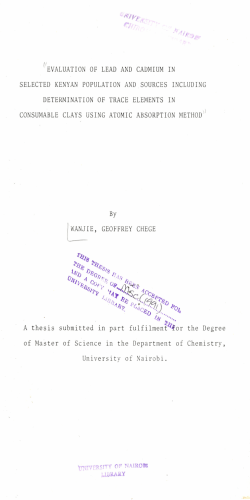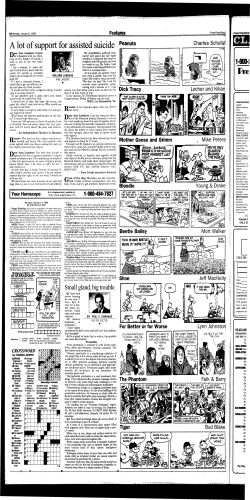
STARS PO Box 175 Stratford-upon-Avon Warwickshire
STARS PO Box 175 Stratford-upon-Avon Warwickshire CV37 8YD +44 (0) 1789 450 564 info@stars.org.uk www.stars.org.uk Postural Tachycardia Syndrome (PoTS) This information sheet is designed for patients who have been diagnosed with postural tachycardia syndrome (PoTS). It contains information on the diagnosis, treatment and management of PoTS. Postural tachycardia syndrome (PoTS) is an abnormality of functioning of the autonomic (involuntary) nervous system. It is defined as an increase in heart rate of over 30 beats per minute (or to higher than 120 beats per minute) (40 bpm in those age 12-19) when standing upright. Typically there is no postural fall in blood pressure, although fainting (syncope) can occur (see below). The symptoms can vary (see below) but mostly involve orthostatic intolerance (the inability to withstand the upright posture) and are often made worse by various daily activities, e.g., modest physical exertion or food. It is a disorder which is slowly being recognised by the medical profession. PoTS is often underappreciated by physicians, which can impact on the patient’s quality of life through misdiagnosis or being informed symptoms are “all in their head”. Historically, many patients with PoTS were given a diagnosis of Chronic Fatigue Syndrome/ME, anxiety or panic disorder. However, one key factor in PoTS is that symptoms generally occur when standing upright rather than in a situation that causes distress or worry, as in panic disorder. Symptoms The main symptoms of PoTS include: • Syncope (fainting) • Dizziness • Light headedness • Insomnia • Palpitations (a sensation of the heart pounding) • Blurred vision • Weakness • Pooling or discolouration of the ankles or feet • Chest pain Potentially related symptoms: • Loss of concentration • Migrainous headache • Fatigue • Shortness of breath • Coldness of legs and fingers • Body temperature regulation issues • Hyperventilation (very fast breathing) that can further affect the control of blood pressure and increase the risk of fainting and feelings of anxiety What causes PoTS? There are a number of factors and disorders causing or associated with PoTS, hence the need to be evaluated by a centre with such experience. Joint Hypermobility Syndrome (previously known as Ehlers Danlos Syndrome type III) is sometimes associated with PoTS. Depending on the results following investigation, treatment strategies can include non-pharmacological measures (i.e. without drugs) as well a range of medications. Postural Tachycardia Syndrome (PoTS) - Patient Information What is PoTS? which can worsen symptoms) confirms the disorder and importantly excludes other causes. The ten minute active stand test can also be useful. Diagnosis is ideally made in an autonomic centre, where a tilt table (see STARS Diagnostic Tests information booklet) with relevant autonomic testing (often with exercise, and sometimes food, Founder and Chief Executive: Trudie Lobban MBE Trustees: Andrew Fear Rose Anne Kenny Cathrine Reid William Whitehouse endorsed by endorsed by www.aa-international.org Affiliate 1 STARS PO Box 175 Stratford-upon-Avon Warwickshire CV37 8YD +44 (0) 1789 450 564 info@stars.org.uk www.stars.org.uk What help is there? Medication: Some specialists do prescribe medication and these can include drugs to slow the heart rate (beta blockers), increase blood volume or the resistance to blood flow in blood vessels. Midodrine is well known as a drug that can help sufferers lead a more normal life. Other drugs that are used include *fludrocortisone, beta blockers, *ivabradine, *SSRI/SNRI antidepressants and occasionally octreotide. Therapy: Cognitive Behaviour Therapy (CBT) has had some success in helping patients come to terms with PoTS and manage their lives. The second you feel your usual symptoms coming on: 1. If symptoms are mild or you are unable to sit or lie down, cross your ankles and tense your calf muscles tightly. Combine this movement with buttock clenching to make effects more pronounced (this will help to get the blood pumping around your body and increase your blood pressure thus relieving symptoms). 2. If you are able, sit down IMMEDIATELY or, if possible LIE DOWN FLAT AND PUT YOUR LEGS IN THE AIR - for example against a wall or propped up on pillows and, if you can, it is preferable to do a cycling movement with your legs. 3. Don’t try to fight your symptoms; you are not stronger than your blood pressure, and it will win! 4. GET UP CAUTIOUSLY when you feel well again. Slowly sit up and gradually stand up. If symptoms continue, promptly repeat immediate action steps. Researchers are attempting to identify and treat the causes of PoTS. Studies are showing that most patients will eventually suffer fewer symptoms with decreasing frequency. If you would like more information please email info@stars.org.uk and include your name and contact details, together with your authority to pass this information to the Autonomic Clinic. Postural Tachycardia Syndrome (PoTS) - Patient Information Non-pharmacological measures: • Elastic support stockings.* • Hydration (2-3 litres orally per day). The patient should have at least one glass or cup of fluids at meal time and at least two at other times each day to obtain 2-3 litres per day. • Increasing daily salt* intake by approximately 6g/1 teaspoon if your blood pressure is within the normal range. • Incorporating physical counter-manoeuvres before and during the upright posture, e.g., calf activation. • Avoiding any risk factors or triggers for PoTS, e.g., warm environments, prolonged standing, large meals with high carbohydrate content. • Maintaining physical activity as best and as safely as possible to prevent/reduce physical deconditioning. Immediate action in the event of a syncope attack: *There is currently no evidence to support these treatments, but they are usually recommended by specialists. Authors: Professor Christopher Mathias, Professor of Neurovascular Medicine Dr David Low, Clinical Research Lead Dr Valeria Iodice, Clinical Research Fellow Andrew Owens, PhD Student, Autonomic and Neurovascular Medicine Unit Dr Lesley Kavi, GP Reviewed by: STARS Medical Advisory Committee Founder and Chief Executive: Trudie Lobban MBE Trustees: Andrew Fear Rose Anne Kenny Cathrine Reid William Whitehouse www.aa-international.org Affiliate endorsed by endorsed by © STARS Published October 2009, Reviewed December 2012, Planned Reviewed Date December 2014. Registered Charity No. 1084898 If you would like further details on the sources of our information or would like to provide feedback please contact STARS. Please remember that this publication provides general guidelines only. Individuals should always discuss their condition with their own healthcare professional. 2
© Copyright 2025





















